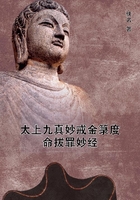If we scrutinise the composition of this second Russian Parliament, we are startled by the fact that with the exception of three gentlemen from Toropeczk, six from Louczk, and twenty-two citizens from the city of Smolensk, all its members were persons residing in Moscow Russian historians have generally explained this anomaly by saying that the Government, having no time to await the arrival of deputies from the provinces, contented itself with consulting such military men as were then present at Moscow, exception being made only as to the inhabitants of some western cities and districts whose interests were directly engaged in the impending war. Such was the case with Smolensk, Louczk, and Toropeczk. If this was so, the Assembly of 1566 would have no right to figure in the list of Russian Parliaments, being nothing but a local Assembly, something like those "etats generaux fractionnes," which were known in France during a great part of the fourteenth and fifteenth centuries. But such is not really the case.(1*) The way in which the military class was represented at the Parliament of 1566 finds its explanation in the organisation of the army at that time. It was then composed of five regiments, quartered in different provinces, each regiment containing a greater or smaller number of "district hundreds." The hundred was not a numerical, but a local division. As a rule, the headship of every hundred was entrusted, not to a local military man, but to some Moscovite nobleman, residing in the metropolis, but possessing estates in the district to which the hundred belonged. Under the circumstances I have described, the Czar, before going into the new war, was naturally desirous of consulting the men who had the local command of his army, those Moscovite noblemen who were placed at the head of the local hundreds. Their usual place of abode being the metropolis, it is easy to understand why inhabitants of Moscow were almost the only men summoned to attend the Parliament. When the Sobor was convened the army had just returned from its last expedition against Lithuania and all the military chiefs would then be in Moscow. These chiefs, as has been already mentioned, were paid for their services not by a fixed salary, but by donations of land granted for the term of service, which practically amounted to a life tenure, and were known by the name of pomestie.(2*) The quantity of land corresponded to the position held in the ranks of the army. Some received only one hundred and fifty desiatin,(3*) some two hundred and twenty-five, some even three hundred, and these differences led to the division of the military classes into three groups called statii. The Sobor of 1566 contained ninety-seven members from the first class and ninety-nine of the second; among the lower group we find only thirty-five from Toropeczk and six from Louzck.
As to the third estate, it was represented by seventy-five men, all belonging to the Moscovite trading class. The reason of this must be sought in the contemporary organisation of the Russian bourgeoisie. During the second part of the sixteenth century we find in Moscow two different classes of tradesmen: one known under the name of "hosts" (gosti), the other under that of "merchants" (koupzi). Both classes contained in their ranks not only Moscovite tradesmen, but also tradesmen from other cities.
The wealthy and influential merchants of the whole empire were inscribed in the list of the "hosts," the rest composed that of the "merchants." This latter class was sub-divided into Moscovite and Smolensk merchants, the latter being those, whose commerce was chiefly confined to the western provinces of Russia and its natural head Smolensk. In the sixteenth century these same sub-divisions re-appear under somewhat different names, the one being called the hundred of "hosts" (gostinnaia sotnia) and the other the hundred of "drapers" (soukonnaia sotnia). The divisions I have mentioned were the work of the central government, which regarded the wealthier merchants as its direct helpers in the difficult task of collecting customs and excise duties.
No person belonging to the Guild of "hosts" could refuse to perform these heavy and responsible duties. The man, on whom the choice of his companions fell, was obliged to remove to the city whose taxes he had to collect. So that the exercise of such functions might be entrusted to persons of great local influence, the election fell, as a rule, on a merchant possessing estates or large stocks of merchandise in the city which he was called to administer. Like the guild of hosts, the guilds of Moscovite and Smolensk merchants were called upon to assist the Government in the exercise of its financial authority and accordingly elected among themselves the officers of the excise and customs administration of the smaller urban districts.














